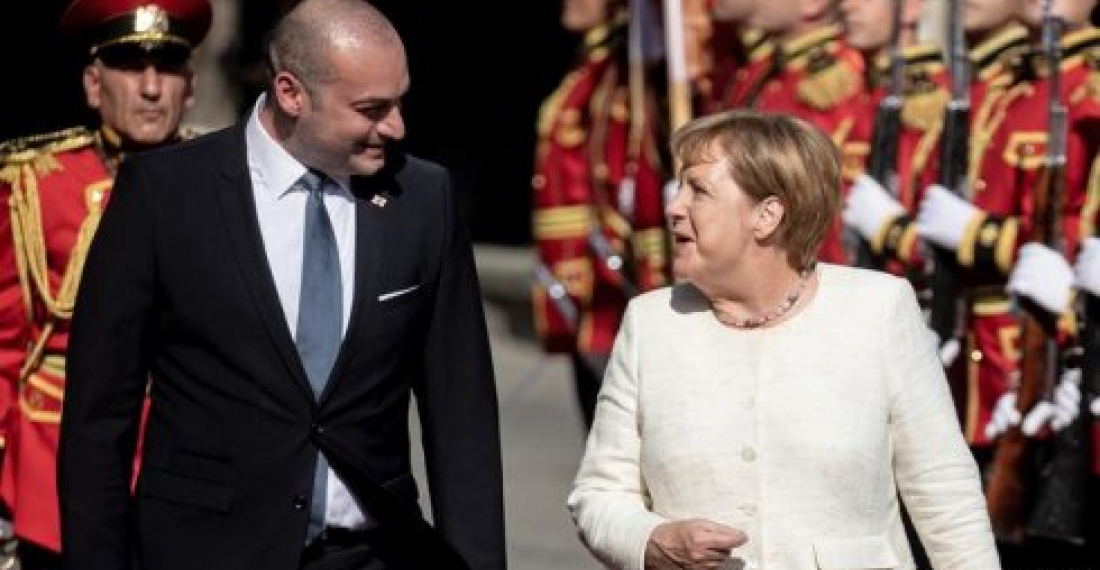German Chancellor Angela Merkel has reaffirmed her support for Georgia's sovereignity and territorial integrity during a one day visit to Tbilisi on Thursday (23 August). At a press conference after a tete-a-tete meeting with Georgian Prime Minister Mamuka Bakhtadze, Merkel said "Georgia is a very important partner in the context of the Eastern Partnership".
On Georgian-Russian relations, Merkel criticised the continued Russian military presence in Abkhazia and South Ossetia and said such a situation should not be tolerated
For his part, Georgian Prime Minister Mamuka Bakhtadze thanked Chancellor Merkel for Germany's support, and said Georgia will continue to strive to join the European Union and NATO."We are part of European civilization ... but we have no illusions, we still have a lot to do," Bakhtadze said. "If the will is there, Georgia will be ready to be a member of the EU and NATO."
Merkel also stressed the importance of deepening bilateral relations between Germany and Georgia and noted that her visit to Tbilisi will promote it. During Merkel's visit, Germany and Georgia signed development cooperation deals worth over €193 million ($223 million), including projects to improve drinking water and sewage systems and to build a gas storage facility.
On Friday Merkel flew to Armenia for the second lap of her visit to the South Caucasus.
source: commonspace.eu with Deutsche Welle and Xinhua
Photo: Chancellor Merkel and Prime Minister Bakhtadze inspecting a guard honour in front of the Georgian State Chancellory in Tbilisi on 23 August 2018







